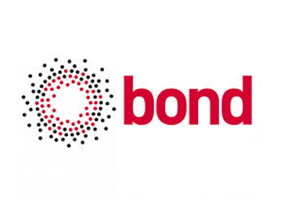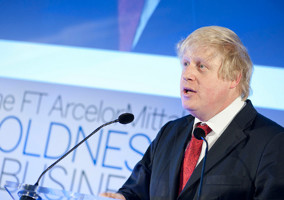Charities were not consulted before two rounds of cuts were made to their funding, charity leaders from Sightsavers and Humanity & Inclusion UK told MPs yesterday.
Representatives from Sightsavers, Humanity & Inclusion UK, CARE International UK, Plan International UK and Women for Women International were giving evidence to the International Development Committee of MPs about the future of UK aid.
Katherine Nightingale, head of advocacy and policy at CARE International UK, described the experience as “trying to work in the dark in many respects” with the cuts having an “overwhelming impact” on the charity's services.
Speakers from the five aid charities said more consultation from the government would have been beneficial before cuts were made to international development funding.
All the charities shared that they had had programmes closed due to government budget cuts. In November 2020, the UK aid budget was reduced to 0.5% of the UK’s Gross National Income (GNI) from the recommended 0.7%.
The merging of the Department for International Development into the Foreign Office in September 2020 is also thought to have reduced the amount of government funding charities can receive.
The news comes after a leaked copy of the government’s Equalities Assessment revealed the government were aware that these budget cuts were likely to harm women, girls and those with protected characteristics if they went ahead.
'Devastating' impact women and girls
Kathleen Spencer-Chapman, head of policy, advocacy and research at Plan International UK, said women and girls were put at risk due to sudden closures.
She said: “Plan International was a partner of a six-year flagship programme in Malawi to prevent and tackle violence against women and girls.
“This programme was about two years of its running when it was told it had to cut 80% off its budget. Having already had 30% cut off its budget the previous year, in the end meant it had to close.
“Suddenly withdrawing that support” before the programme was finished put “women and girls at risk of harm and at risk of backlash in those communities which is a terrible outcome and really goes against the governments own principles to do no harm”.
Spencer-Chapman said that there was no time or care given to plan an exit from to avoid the risk of harm to women and girls.
Naomi Gokwat, programme coordinator for Nigeria at Women for Women International, said a sudden cut to one of the charity’s services was “devastating”.
She said: “The hope we had given these people was taken away. We had promised them it would be a three-year or four-year programme, and just a year and a half into the programme, this was taken away from them.”
Nightingale from CARE International UK told the committee: “I can’t think of any humanitarian programmes that haven’t been cut.”
The charity professionals also raised concerns about ongoing uncertainty regarding the cuts.
Hannah Loryman, head of policy at Sightsavers, said one of its programmes is still uncertain about its budget.
This shows “that uncertainty about what we can deliver was not just a year ago but continues today,” she said.
Were the cuts necessary?
In regards to the reduction of the aid budget to 0.5% of the UK’s GNI, Nightingale said that the recommendation to contribute 0.7% of GNI to the aid budget is “not a ceiling, it’s a floor”.
“It’s only 70p in every £100,” she said.
Spencer-Chapman said: “I think there’s a question mark around whether it was strictly necessary to scale back to 0.5 at that point. I think the UK was the only G7 country to do that in the middle of the pandemic so I think that’s questionable.
“But it could then have been a bit more thoughtful, having made that decision about how that was done. For example, phase that in over a number of years to allow some of these programmes to phase out in a responsible manner to avoid harm.”
Charity had 90 days to shut a programme down
George Graham, CEO of Humanity & Inclusion UK, gave an example of a programme that had to shut down very quickly.
He said Humanity & Inclusion UK had been working with BRAC in Bangladesh and Uganda to test whether BRAC’s graduation programme, which aims to lift people out of extreme poverty, could support people with disabilities.
But when funding was cut to the scheme, the project had just 90 days to wind down.
Chair of the committee, Labour MP Sarah Champion, was shocked by this. “Wow,” she said and moved on to the next question.
Impact on those with protected characteristics
Loryman and Graham shared experiences on how government cuts had caused harm to initiatives meant to support people with protected characteristics.
Graham said: “What we saw as an inevitable consequence of scaling back the amount of money available was people defaulting to low-hanging fruit, if you like. So, by definition, when you’re going for the biggest bang for your buck, I guess, you’re not going for the hardest to reach or furthest behind.”
Related articles












